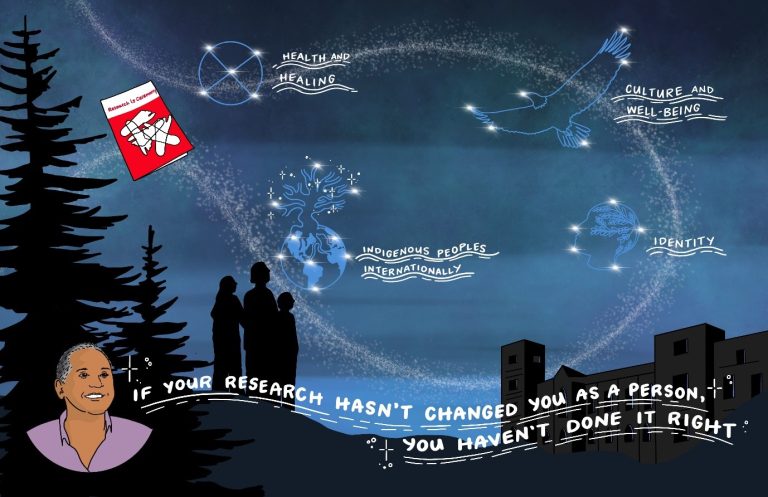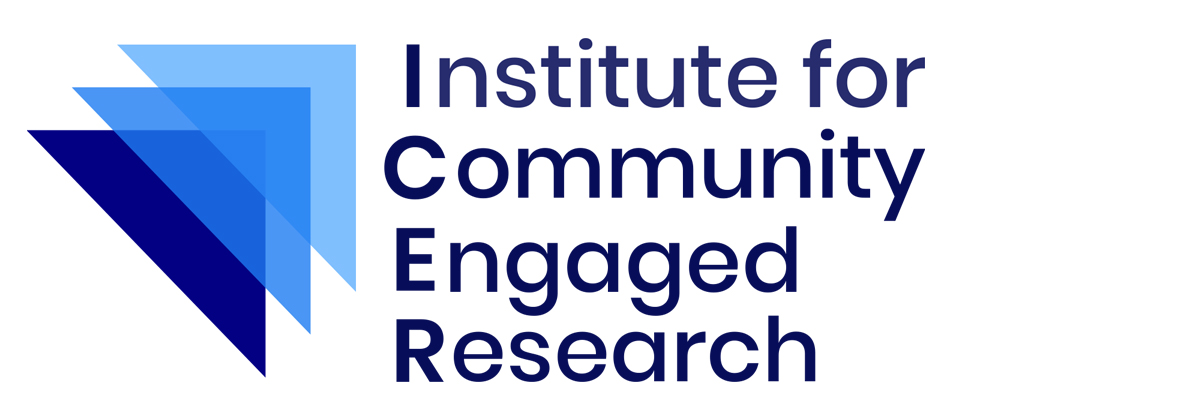
About Us
The Institute for Community Engaged Research (ICER) has developed out of pre-existing research centres (the Centre for Social, Spatial, and Economic Justice – CSSEJ, and the Centre for Inclusion and Citizenship – CIC) through a series of consultations involving university and community participants.
The Institute for Community Engaged Research (ICER) supports socially engaged research with communities internationally, nationally, and in the Okanagan Valley. Sharing a commitment to research that supports diversity, equity, and social justice, the Institute facilitates the participation of community members, organizations, students, and academics as co-researchers. ICER is a hub for building relationships, collaboration, and effective knowledge creation and exchange through research clusters operating across disciplinary and institutional boundaries. ICER operates fluidly in response to and in recognition of changing social issues.
Vision
The Institute for Community Engaged Research (ICER) at UBC is dedicated to knowledge creation and exchange that promotes equality, equity, and justice at the local, national, and international levels.
Values
- We are committed to community driven research practices that respect the autonomy of community goals and perspectives.
- We are committed to research relationships that are responsible, relevant, respectful and reciprocal.
- We are committed to collaboration and co-creation in research design, execution, evaluation, and mobilization.
- We are committed to interdisciplinary and multidisciplinary approaches to research.
- We are committed to research inclusive of human and nonhuman actors and the environment in which we live.
- We are committed to active participation of community members, faculty, and graduate and undergraduates students in research.
- We are committed to university-community engagement through the integration of teaching and research.
- We are committed to research that respects diversity and difference.
Director & Research Cluster Leaders
 |
CHRISTINE SCHREYER – Director PROFESSOR, COMMUNITY, CULTURE, AND GLOBAL STUDIES (ANTHROPOLOGY)M.A. University of Western Ontario, Ph.D. University of Alberta I am an professor of anthropology at UBC Okanagan, where I teach courses in linguistic anthropology. My research focuses on language documentation and revitalization in Canada and in Papua New Guinea, as well as the relationship between endangered language communities and created language communities. I have done research on the Na’vi speech community (from the movie Avatar) and am the creator of the Kryptonian language from Man of Steel (2013), the Eltarian language from Power Rangers (2017), and the Beama (also known as Cro-Magnon) language from Alpha (2018). |
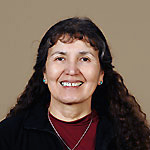 |
JEANNETTE ARMSTRONG – Cluster Leader for Adaptation, De-colonization, and Indigeneity CANADA RESEARCH CHAIR and PROFESSOR, INDIGENOUS STUDIES B.F.A University of Victoria, Ph.D., University of Greifswald, Germany Jeannette Armstrong was born in 1948 and grew up on the Penticton Indian Reserve in British Columbia. Armstrong is the first Native woman novelist from Canada. Interestingly, she is also the grandniece of Hum-Ishu-Ma (Mourning Dove, b. 1927), the first Native American woman novelist. While growing up on the Penticton Indian Reserve, Armstrong received a traditional education from Okanagan Elders and her family. From them, she learned the Okanagan Indian language. She is still a fluent speaker of the Okanagan language today.In 1978, she received her Bachelor of Fine Arts degree from the University of Victoria. The same year, she received a Diploma of Fine Arts from Okanagan College. Her education was a precursor to many remarkable career achievements. Today, Armstrong is a writer, teacher, artist, sculptor, and activist for indigenous rights. |
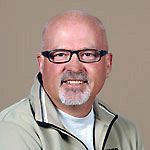 |
LAWRENCE BERG – Cluster Leader for Social, Spatial, and Economic Justice PROFESSOR, COMMUNITY, CULTURE, AND GLOBAL STUDIES (CRITICAL HUMAN GEOGRAPHY) BA. University of Victoria, MA. University of Victoria, D.Phil. University of Waikato, NZ. I am currently Professor (Critical Geography). My research and teaching focus on critical geographies of knowledge production, critical geographies of health care and urban indigenous people in Canada, and place and the politics of identity. |
 |
JON CORBETT Cluster Leader for Communication, Community and Representation |
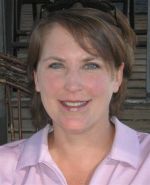 |
RACHELLE HOLE Cluster Leader for Social Inclusion and Equity PROFESSOR, SCHOOL OF SOCIAL WORK B.A. The University of Manitoba—Psychology, B.SW. The University of British Columbia, M.SW. The University of British Columbia, Ph.D. The University of British Columbia—Interdisciplinary Studies Rachelle Hole joined the faculty in 2004. Her main research interests are in the area of disability studies and identity theory. Her doctoral thesis explored the intersection of hearing loss and identity, exploring how three culturally Deaf women perceived the influence of hearing loss on their identities. The interest for this topic emerged from her social work practice over 20 years working with Deaf, Hard of Hearing and Deaf-Blind individuals and their families throughout the Province of British Columbia. |
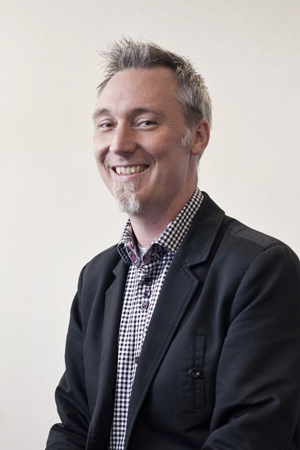 |
LEYTON SCHNELLERT – Cluster Leader for Pedagogy and Participation ASSOSCIATE PROFESSOR, FACULTY OF EDUCATION BEd. Med. Ph.D. University of British Columbia Dr. Schnellert researches teacher learning, practice, and collaboration. In particular he attends to how teacher professional development relates to student diversity, inclusive education, self- and co-regulation, and literacy instruction. His research grapples with the challenge of designing and facilitating teacher professional development that bridges theory and practice so as to achieve valued outcomes for students. |
Members
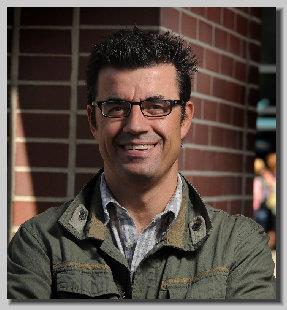 |
LUIS AGUIAR PROFESSOR, SOCIOLOGY M.A. McMaster University, Ph.D. York University My academic research career focuses on investigating building cleaners’ campaigns to ‘crisise’ neoliberalism. By ‘crisising’ I mean their campaigns and organized attempts to argue the trauma of neoliberalism and its consequences in cleaners’ workplaces, personal lives and communities. This interest leads me to study cleaners’ strategies and discourses of resistance neoliberal policies of the erosion of industrial citizenship. Currently I seek to understand and follow how resistance against an emerging post-industrial citizenship is being organized between cleaners and their union across borders. It is in this context that I’m interested in contributing to the literature on global unions and organizing. |
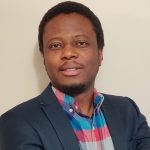 |
ADENIYI ASIYANBI
ASSISTANT PROFESSOR, GEOGRAPHY, DEPARTMENT OF COMMUNITY, CULTURE AND GLOBAL STUDIES, UBC Okanagan. BSc University of Ibadan, MSc and PhD King’s College London. I am currently Assistant Professor of Geography in the Department of Community Culture and Global Studies. My research takes a critical, interdisciplinary and engaged political ecology approach to the intersection of climate change, forests, neoliberalism and development. I situate ideas, policies and projects at this intersection within critical debates on power and resistance, neoliberalization of nature, local resource politics, conservation and development, colonial and postcolonial conservation history, and social justice. My community-based research investigates how and with effects local and Indigenous communities engagement with conservation and development, ‘natural climate solutions’ such as forest carbon offsetting, and wildfires. I have been working closely with local forest communities in Nigeria’s Cross River for many years. More recently I have also been working with communities in British Columbia, Canada. |
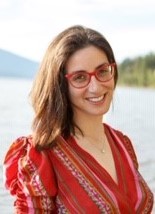 |
SHELLY BEN-DAVID ASSOCIATE PROFESSOR, SCHOOL OF SOCIAL WORK 2019 MSFHR scholar MSW, Columbia University, PhD New York University My program of research focuses on the prevention and early intervention of mental illness for youth and young adults, through: 1) mental health service delivery, and 2) development of psychosocial interventions. Working closely with Foundry, an integrated youth health service in Western Canada (foundrybc.ca), my work aims to understand the decision-making process among youth accessing mental health services to increase the alarmingly low rates of service use among Canadian youth. I am also interested in investigating the intersections of identity and mental illness among young people in the early stages of psychosis, including novel interventions and recovery processes through community engaged research. In line with Canada’s Strategy for Patient-Oriented Patient Engagement Framework, engaging young people in research is central to my work, as it has been shown to improve the quality of health service research. |
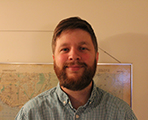 |
BONAR BUFFAM ASSOSCIATE PROFESSOR, FASS (SOCIOLOGY) M.A. University of Alberta, PhD University of British Columbia I am an Associate Professor of Sociology at UBC Okanagan. My teaching and research explore the cultural politics of crime control as well as the social trajectories of law, religion, and systemic racism. In my current research I examine how these processes are reflected in the changing state regulation of immigration, security, and religion in British Columbia; as well as the case law surrounding the defamation of religious and racialized groups in Canada and the United States. |
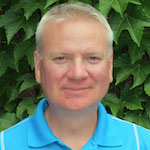 |
KENNETH CARLAW PROFESSOR, ECONOMICS, FACULTY OF ARTS Ph.D. Simon Fraser University Dr. Kenneth I. Carlaw is a Professor of Economics at the University of British Columbia, Canada. Dr. Carlaw received his Ph.D. (2000) from Simon Fraser University, Canada and has held lecturer and senior lecturer positions at the University of Canterbury. Dr. Carlaw has been an advisor and consultant to Industry Canada, the New Zealand Treasury, the Reserve Bank of New Zealand, the New Zealand Ministry of Economic Development, the Australian National Office for the Information Economy, and the Australian Department of Communications, Information Technology and the Arts. Dr. Carlaw’s major research focuses are in evolutionary economics applied to historical innovation, technological change, productivity and sustainable long term economic growth and development. Along with his co-authors Richard G. Lipsey and Clifford T. Bekar, Carlaw wrote the 2006 Schumpeter Prize winning book Economic Transformations (2005) which analyses economic transformations generated by the invention and exploitation of major (general purpose) technologies from 8000 BC to present. He has also written extensively on productivity measurement and on evolutionary macroeconomic growth theory. |
 |
JESSICA CHAN ASSISTANT PROFESSOR, OKANAGAN SCHOOL OF EDUCATION Hons. B.Sc. (University of Toronto), M.Ed. (Queen’s University), Ph.D. (Queen’s University), SSHRC Postdoctoral Fellow (University of South Carolina) Dr. Jessica Chan (she/her) is an Assistant Professor of Language Arts and Literacy Education in the Okanagan School of Education, The University of British Columbia. Dr. Chan is a reading researcher and teacher educator committed to bridging research to practice in schools and community settings. Dr. Chan directs the Reading, Language, and Mathematics (ReaLM) lab. The goal of her research program is to understand how language and literacy develops in diverse learners including children from different cultural and linguistic backgrounds, and children with and without learning disabilities. Her research considers the cognitive, linguistic, and social factors that impact academic learning. Dr. Chan partners with community organizations to lead literacy initiatives that enhance family literacy at home. |
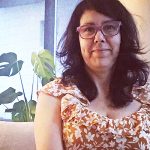 |
KERRIE CHARNLEY
ASSISTANT PROFESSOR OF TEACHING, ENGLISH AND CULTURAL STUDIES Ph.D. Education, The University of British Columbia; M.A. English, Simon Fraser University; B.A. English, Simon Fraser University. Dr. Kerrie Charnley has a PhD in Language and Literacy Education from the University of British Columbia. She is Coast Salish from Katzie First Nation and over the past 17 years has taught courses in Indigenous Education, Literature, and Health at UBC, SFU, and the Institute for Indigenous Governance (NVIT). Dr. Charnley’s research interests include: Indigenous Epistemologies, Salishan Intellectual Traditions and Literatures (Interior Salish Literatures and Coast Salish Literatures), Indigenous Literatures, Indigenous Storywork, Indigenous Oral Traditions, Indigenous Literacies, Indigenous Land/Ocean-Based Pedagogies, Indigenous Languages, Multimodal and Multi-sensory Literacies, Cognitive Maps and Geography, Rhetoric, Discourse Analysis, A/r/tography and Arts-Based Research, Autoethnography and Memoir, Mixed Genre Writing, Writing Education |
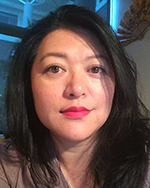 |
SHIRLEY CHAU ASSOCIATE PROFESSOR, SCHOOL OF SOCIAL WORK B.A. (Hons) SFU—Psychology, BSW University of British Columbia, M.SW University of Toronto, Ph.D., University of Toronto Shirley teaches undergraduate-level courses in direct social work practice and theories of social work practice and a graduate-level course on health-interprofessional research and evidence-informed practice. Central to her teaching approach is the anti-racist and anti-oppressive lens for clinical practice, and social and organizational change. Shirley’s clinical interests and experience are in the areas of work and wellness, crisis intervention, psychological trauma, and individual counseling. In addition, Shirley is an active researcher on marginalized populations and health, as well as on practice and policy relevant issues related to child welfare. Her interest in conducting research on vulnerable and marginalized populations includes previous research on: housing issues in child welfare; the impact of inquests on child welfare organizations; the health and well-being of Chinese Canadian seniors; the settlement experiences of Asian immigrant adolescents; and the health of homeless youth exposed to violence on the streets of Toronto’s inner city. |
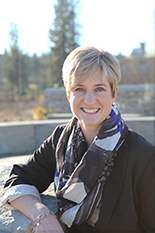 |
SABRE CHERKOWSKI PROFESSOR, FACULTY OF EDUCATION, UBC OKANAGAN BA, BEd, MEd, PhD (Saskatchewan) Sabre Cherkowski is a Professor in the Faculty of Education at the University of British Columbia Okanagan. The focus of her teaching areas are: educational leadership; educational foundations; diversity and inclusion in education. Her research interests include organizational well-being; mindful leadership; teacher leadership; professional development; learning communities; reflective practice; and moral agency. She is currently engaged in a SSHRC-funded research project investigating how it is that some schools and people within schools flourish. She brings her experiences as an educator, coach and parent to her passion for growing the theory and development of positive organizational capacities, such as flourishing, in schools. |
 |
JONATHAN CINNAMON ASSISTANT PROFESSOR, GEOGRAPHY, DEPARTMENT OF COMMUNITY, CULTURE AND GLOBAL STUDIES BA (Toronto Metropolitan University) MA and PhD (Simon Fraser University) Jonathan Cinnamon is an Assistant Professor of Geography at UBC Okanagan. Working in collaboration with stakeholders and across disciplines, his current research examines the societal conditions that emerge as grassroots, corporate, and municipal government actors invest in data and digital technologies. Additionally, he has a longstanding interest in developing novel spatial and visual methods of knowledge production appropriate for low-resource settings. Prior to joining UBC Okanagan, Jonathan was a faculty member at Toronto Metropolitan University (Toronto, ON) and the University of Exeter (Exeter, UK), and held visiting positions at Wits University (Johannesburg, South Africa), and Ohio State University (Columbus, OH). |
| BILL COHEN
ASSISTANT PROFESSOR, EDUCATION Creative Writing, En’owkin Centre, Bachelor of Arts and Science with Distinction, University of Lethbridge, Master of Education: Administrative Leadership First Nations Focus, SFU, Education Doctorate: Policy and Leadership, UBC BIO: Forthcoming |
|
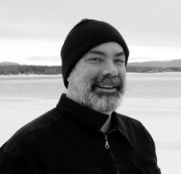 |
MICHAEL EVANS – Barber School Dean’s representative on the Steering Committee PROFESSOR, COMMUNITY, CULTURE, AND GLOBAL STUDIES (ANTHROPOLOGY) B.A. (Hons) University of Victoria—Anthropology, M.A. McMaster University—Anthropology, Ph.D. McMaster University—Anthropology(On Leave) Dr. Evans has been involved in several community based research initiatives, and in particular has a long-term relationship with the Prince George Métis Elders Society. He has also worked extensively with colleagues at the Métis Nation of British Columbia on a number of research projects dealing with historic and contemporary Métis communities in BC, some of which are discussed in this volume. Together with Elders and community leaders in Prince George he put together a Métis Studies curriculum for UNBC and a number of publications including What it is to be a Métis (Evans et al 1999, 2007), A Brief History, of the Short Life, of the Island Cache (Evans et al 2004). He has also worked on a number of participatory video projects with collaborators from the Métis community and videographer and new media artist Stephen Foster. He is also involved in a number of active research projects concerned with Cultural Safety and Aboriginal health, especially in the Urban Aboriginal and Métis communities in Canada. |
 |
NATALIE FORSSMAN
ASSISTAMT PROFESSOR OF TEACHING, ANTHROPOLOGY BA, Philosophy, University of British Columbia, MA, Communication, University of California, San Diego, PhD, Communication and Science Studies, University of California, San Diego My research investigates how scientific and technical knowledges are mobilized in different social and cultural contexts, and the opportunities for publics to reciprocally participate in the generation of relevant, situated, and responsive sustainability, conservation, and climate action knowledges and practices. I am working on several projects that advance place-based, community-engaged, justice-oriented, and interdisciplinary pedagogies for sustainability and environmental challenges. Community engaged teaching and learning, and the development of robust community-university partnerships, are core interests as I teach and lead the development of community service learning curriculum in the Bachelor of Sustainability Program. |
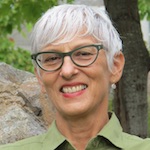 |
SUSAN FROHLICK PROFESSOR, COMMUNITY, CULTURE, AND GLOBAL STUDIES (ANTHROPOLOGY, and GENDER AND WOMEN’S STUDIES. HEAD UNIT 1 MA Simon Fraser University, PhD York UniversityI am a cultural anthropologist and ethnographer. My recent project, in partnership with the Sexuality Education Resource Centre and the Immigration and Refugee Community Organization of Manitoba, looks at how HIV risk matters to African newcomer youth. Funded by the CIHR HIV/AIDS Community-Based Research Program, we use ethnography, photo voice, and other methods to engage youth in the research and representation. I also work with Caribbean communities on questions of how global tourism affects kinship and family formations and the life projects of youth. My research appears in journals such as Anthropological Quarterly, Tourist Studies, Gender, Place & Culture, and Mobilities. My first book, “Women, Sexuality, Tourism: Cross Border Desire through Contemporary Travel,” is published by Routledge. A second book is underway that examines reproductive mobility through a case study in Costa Rica. |
 |
HEATHER GAINFORTH
ASSOCIATE PROFESSOR, SCHOOL OF HEALTH AND EXERCISE SCIENCES Dr. Gainforth’s academic training in Health Promotion, Knowledge Translation and Kinesiology has fostered her belief that evidence-based health promotion interventions and guidelines must be widely disseminated both in general and special populations. Her research aims to close the gap between health behaviour change research and practice by examining knowledge translation – the act of moving research evidence into the hands of research users. Her emerging research program aims to identify, develop and implement novel strategies for disseminating evidence-based health information and interventions to populations. Her systems-based research is grounded in behaviour change theory and techniques and is guided by strong collaborations between researchers and communities. |
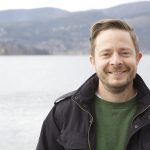 |
DAVID GEARY
ASSOCIATE PROFESSOR, ANTHROPOLOGY, DEPARTMENT OF COMMUNITY, CULTURE AND GLOBAL STUDIES
PhD (University of British Columbia), MA (Carleton), BA (Simon Fraser University).
My main research focuses on the reinvention of Buddhism in modern/contemporary India and how the politics of national heritage and tourism development intersect with wider transnational communities of religious practice in Asia. The themes central to my work are the colonial and postcolonial entanglements of archaeological heritage and sacred space, the politics of tourism and urban redevelopment, and the communal conflicts engendered by various social and spatial relations. |
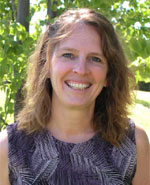 |
JUDY GILLESPIE – Health & Social Development Dean’s representative on Steering Committee ASSOCIATE PROFESSOR, SCHOOL OF SOCIAL WORK B.SW. University of Calgary, M.SW. University of Calgary, Ph.D., University of British Columbia My primary interests are in the role of communities and their social, physical, and political infrastructures in the promotion of child welfare. I am also interested in place; the role of place in well-being, the interactions of person and place, including the ways in which professional practice is shaped by place. I approach these interests through a social constructionist lens. My experience as a social work practitioner includes supervision and staff training and development in child protection, mental health therapy with children, adults and families, and co-facilitation of group treatment programs for perpetrators of intimate partner violence. I have practiced community organizing in a variety of settings with much of this occurring in rural areas and Aboriginal communities in northern Alberta. |
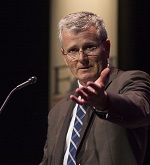 |
JOHN GRAHAM PROFESSOR AND DIRECTOR, SCHOOL OF SOCIAL WORK Ph.D. (University of Toronto) RSW Prior to coming to UBC, he was Director of the School of Social Work at Florida Atlantic University, and before that at The University of Calgary where he had served as Murray Fraser Professor of Community Economic Development, and successively as MSW International Concentration Program Coordinator and PhD Program Coordinator. He is returning to a previous interest in homelessness research, and for the past 25 years has been a well cited, well funded scholar supported successively by the SSHRC, CIHR, HRSDC, and by NGOs. Further details are at https://ourstories.ok.ubc.ca/stories/john-graham/ |
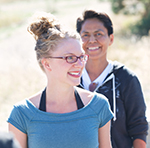 |
ALLISON HARGREAVES ASSISTANT PROFESSOR, DEPARTMENT OF CRITICAL STUDIES (ENGLISH) BA, MA (University of Alberta), PhD (Western University) Allison Hargreaves is a settler-scholar of Indigenous literatures and an assistant professor in the Department of Critical Studies at the University of British Columbia (Okanagan Campus), where she teaches courses in Indigenous literary and cultural studies in contemporary North America. Allison’s research investigates literary and policy interventions into gendered colonial violence in Canada, and has appeared in Studies in American Indian Literatures, Canadian Literature Quarterly, Canadian Woman Studies, and Canadian Theatre Review. |
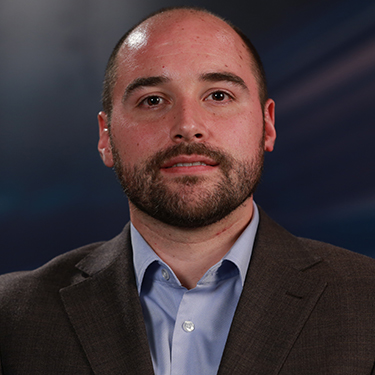 |
ROSS HICKEY (on leave) ASSISTANT PROFESSOR, ECONOMICS, UBC OKANAGAN B.A. St. Francis Xavier University, MA, Ph.D Simon Fraser University I am an Assistant Professor of Economics.My area of expertise is public economics: the study of collective decision making, regulation, public good provision, and revenue raising to finance public good provision. I study special interest politics and human behaviour as it relates to charitable giving, voting, trust and other aspects of non-market economic activity. |
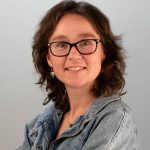 |
FEMKE HOEKSTRA ASSISTANT PROFESSOR, DEPARTMENT of MEDICINE, DIVISION of SOCIAL MEDICINEDr. Hoekstra is an Assistant Professor at UBC’s Department of Medicine, Division of Social Medicine in the area of Implementation Science. She is also Investigator within the Centre for Chronic Disease Prevention and Management (CCDPM) at the UBC Okanagan and Associate Member of International Collaboration on Repair Discoveries (ICORD). Dr. Hoekstra holds a Doctor of Philosophy, PhD from the University of Groningen in the Netherlands, in the areas of implementation science, rehabilitation, and physical activity promotion.Dr. Hoekstra’s runs the Implementation Science & Isolated Communities (ISIC) lab (https://isiclab.med.ubc.ca/). Her implementation science research program focuses on improving (virtual) health services and care for equity-deserving groups in rural, remote and isolated communities. Her research involves studying implementation processes of health innovations in real-world settings from different perspectives. To maximize the quality and impact of her work, she meaningfully engages research users as partners throughout the research process. |
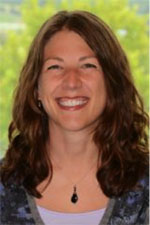 |
SUSAN HOLTZMAN ASSOCIATE PROFESSOR, PSYCHOLOGY M.A. University Of British Columbia, Ph.D. University of British Columbia Dr. Susan Holtzman is an Assistant Professor and Lead Investigator of the Health Psychology Laboratory at the University of British Columbia – Okanagan. Dr. Holtzman received her PhD in Clinical Psychology from the University of British Columbia in Vancouver. She completed a clinical internship at the University of Washington School of Medicine and a postdoctoral research fellowship at the University Health Network, University of Toronto. Dr. Holtzman’s research investigates the ways in which psychosocial factors can influence emotional and physical adjustment to chronic health conditions. She is particularly interested in how social relationships can help or hinder patients’ efforts to cope with their disease, and how chronic illness can impact the family. Dr. Holtzman uses experimental, longitudinal and daily process methods (which involve intensive daily monitoring of study variables) to better understand the connection between stress, mood, social relationships, and health over time. |
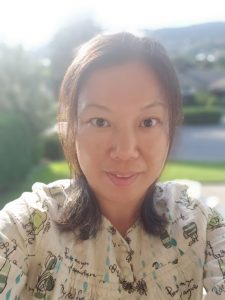 |
BOWEN HUI ASSOCIATE HEAD UNDERGRADUATE, ASSOCIATE PROFESSOR, COMPUTER SCIENCE PhD University of Toronto My areas of research are: Learning analytics; computer science education; decision making under uncertainty; probabilistic user modeling; human-computer interaction cost models; experiment design and analysis. I teach to make students wonder; make student work harder than they ever thought they could, make students realize they can accomplish anything they put their mind to, make students figure out what they want out of their education. Why I research? |
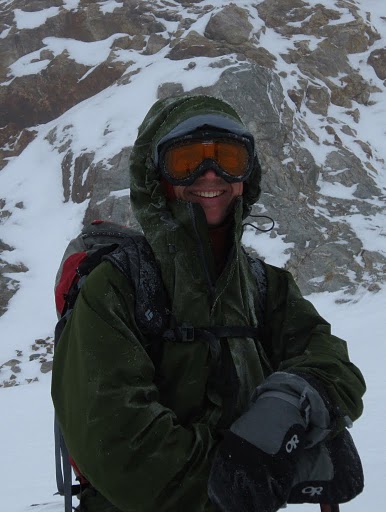 |
JOHN JANMAAT ASSOCIATE PROFESSOR, ECONOMICS M.BA. SFU, Ph.D. Queen’s University I am an associate professor of Economics. I joined UBC in 2007, after teaching for seven years at Acadia University in Nova Scotia. My primary research and teaching interests are in environmental and natural resource economics, with a special focus on the economics of water resources. Beyond the university, I enjoy almost anything outdoors that involves some exertion. You can easily distract me by talking about mountaineering, skiing, mountain biking, etc. However, a conversation about golf or fishing probably won’t last that long. |
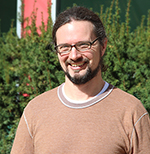 |
DAVID JEFFERESS ASSOCIATE PROFESSOR, CULTURAL STUDIES AND ENGLISH, UBC OKANAGAN B.A., (Hons) McMaster University, B.Ed. Lakehead University, M.A., Ph.D McMaster University David Jefferess is a settler-scholar who teaches courses focused on postcolonial studies, critical interculturalism, global justice, and human rights narrative in the Cultural Studies and English programs. He has also developed a community engaged research course in Cultural Studies, in which students complete research projects for community organizations. His current research focuses upon contemporary humanitarian discourses and includes articles and chapters on the white saviour complex, the neoliberal politics of social enterprises such as Me to We, and the complicity of global citizen education initiatives in the development of the elite benevolent citizen. Allison Hargreaves and David Jefferess co-organize the AlterKnowledge project, which aims to foster critical dialogue on ongoing colonialism and practices of decolonization in the Okanagan region, and globally. |
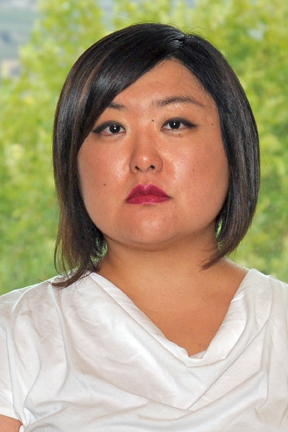 |
RUTHANN LEE ASSISTANT PROFESSOR, CULTURAL STUDIES (On Leave) B.A. (Hons) University of Toronto—Equity Studies and Human Biology, M.A. University of Toronto—Sociology and Equity Studies in Education, Ph.D. York University—Sociology As a cultural studies scholar, I examine the links between media and social activism. My research draws on my experience as a community educator and video artist. I have worked in anti-violence, anti-racist, feminist, queer, and arts organizations, and I am interested in how art and media can be used to promote social, environmental, and economic justice. I explore this idea in the courses I teach, which include CULT 100: Themes in Culture and Identity and CULT 401: Feminism, Media, and Resistance. |
 |
GABRIELLE LEGAULT ASSISTANT PROFESSOR, INDIGENOUS STUDIES B.A. The University of Saskatchewan, M.A., PhD. University of British Columbia I am Métis from Lac Pelletier, Saskatchewan and joined the faculty in 2020, but had previously been working in the Office of Research Services as an Indigenous Community Liaison. My research and teaching specializations are firmly rooted in Indigenous studies, with additional expertise in contemporary Métis studies. My previous and current research is centred on community-based interdisciplinary collaborations with Indigenous organizations, including Métis Nation British Columbia. I see myself as a bridge-builder and strive to connect communities to solutions-oriented research, build community research capacity, and create transformative learning experiences. |
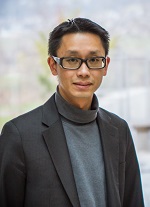 |
ERIC LI ASSISTANT PROFESSOR, FACULTY OF MANAGEMENT B.A. Hong Kong Polytechnic University, M.A. Chinese University of Hong Kong, Ph.D. Schulich School of Business, York University Dr. Li’s work has been published and presented in a number of academic journals and conferences such as the Association for Consumer Research, the American Marketing Association, Academy of Management Conference, and the Consumer Culture Theory Conference. Dr. Li teaches Qualitative Methods in Management Research (graduate-level), Digital Marketing and Consumption (graduate-level), and Introduction to Marketing (undergraduate-level) at the University of British Columbia. He also developed directed studies courses on fashion advertising, fashion, design and culture with senior marketing students in the past years. He was on the University of British Columbia – Okanagan’s Teaching Honour Roll in the 2012-2013 academic year. He is also the founder of the Healthy Living project, a community-based experiential learning project that connects management students with regional community partners such as regional governments, non-profit organizations, and for-profit organizations to promote healthy living. In addition to his research and teaching, Dr. Li serves as the regular board member of the Behavioural Research Ethics Board (BREB) of University of British Columbia – Okanagan He is also one of the Faculty Advisors for the campus-wide co-op program at the University of British Columbia – Okanagan campus. Dr. Li is currently a member of Blockchain@UBC – a collaborative research cluster focusing on Blockchain Technology, the associate member of UBC’s Institute for Healthy Living and Chronic Disease Prevention, and the faculty associate at the York Centre for Asian Research. |
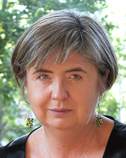 |
MARGARET MACINTYRE LATTA PROFESSOR, FACULTY OF EDUCATION, UBC Okanagan B. Ed.; University of Lethbridge; M.A. University of Calgary; Ph.D. University of Calgary Margaret Macintyre Latta is currently Professor and Director of Graduate Studies in the Faculty of Education at the University of British Columbia Okanagan (UBC O) in Canada. She is also the Director of the Centre for Mindful Engagement at UBC O (http://cme.ok.ubc.ca/). Her scholarly and professional activities concern the nature of curriculum in relation to community, grounded in the varied ways multiple narratives, perspectives, strengths, and resources hold potential for reframing and reorienting individual/collective engagement in and with the world. In particular, how curriculum and community so conceived provide much-needed sustenance for genuine learning opportunities of all kinds and merit serious consideration as a pragmatic and philosophical necessity in schooling, forms her research interests. Ongoing efforts explore the possibilities for teaching/learning contexts, calling for rethinking and revaluing of what is educationally important, and identifying the concrete implications of taking arising considerations seriously in educative settings. To access scholarship, see: http://education.ok.ubc.ca/about/faculty/mmlatta.html#undefined |
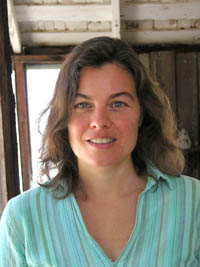 |
VIRGINIE MAGNAT ASSOCIATE PROFESSOR, CREATIVE AND CRITICAL STUDIES International Baccalaureate, Lester B. Pearson United World College, M.A. University of Sorbonne Paris)—English, Ph.D. University of California, San Diego—Drama and Theatre I believe that it is the responsibility of university theatre programs to familiarize students with the rich cultural legacy of world performance traditions and foster a shared sense of humanity as well as a genuine respect for diversity. My personal dedication to working cross-culturally is rooted in a foundational life experience: at the age of 15, I was fortunate to receive a two-year full scholarship to study at the Lester B. Pearson United World College of the Pacific, a non-profit institution promoting international understanding through education. My early passion for theatre was deeply informed by this intensely fulfilling time in a “global village” hosting two hundred students from over seventy countries in the coastal forest of Vancouver Island. It was then that I became aware of the infinite potentialities that arise when people with different cultural legacies live and work together. I have since envisioned performance as a powerful site of encounter, exchange, and collaboration. |
 |
FIONA P. McDONALD ASSISTANT PROFESSOR, COMMUNITY, CULTURE, AND GLOBAL STUDIES (ANTHROPOLOGY) M.A University of Alberta (Canada), GRAD Dip. Māori Studies, University of Auckland (Aotearoa New Zealand), Ph.D. University College London (UK)I am an assistant professor of Visual Anthropology in the Community, Culture, and Global Studies Department. My research interests are: cold climate housing, water rights, material and visual culture, oral histories, curatorial theory, performance theory, and sensory ethnography. I am the co-founder of Ethnographic Terminalia Collective (ETC) (est.2009) (http://ethnographicterminalia.org/), an international curatorial collective that curates exhibitions at the intersections of arts and anthropology. My current arts-based research project with Dr. Benjamin Day Smith (IUPUI) is a digital arts-based ethnography that incorporating sensory input (aural, visual, touch, taste, smell) as a form of informal science learning around environmental issues through humanistic inquiry to create digital learning tools and immersive environments. Sensory Storytelling (www.sensorystortelling.org) is a community-engaged, multimodal, co-creation project with youth in schools (K-12) that draws from arts and music technology, cultural anthropology, and curatorial best practices. I am the Director of the Collaborative and Experimental Ethnography Lab (www.ce2lab.org) that will open in 2020 at UBCO and is co-Directed with Professor Susan Frohlick. The CE2 Lab is funded by the Canadian Funding for Innovation (CFI) and the British Columbia Knowledge Development Fund (BCKDF).
|
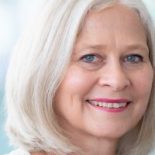 |
LISE OLSEN ASSOCIATE PROFESSOR, SCHOOL OF NURSING PhD, RN BSN, University of British Columbia, MPH, University of California, Los Angeles, PhD, University of British Columbia I am an associate professor with the School of Nursing at UBC Okanagan. My research interests include: health promotion for children and youth; active, safe and inclusive play for children; parent perspectives about risk and safety for children; the role of equity related factors in active, safe play: gender, income, disability, chronic illness, and also injury prevention and activity promotion experiences of families and children living with autism. |
 |
COLIN OSMOND ASSISTANT PROFESSOR, COMMUNITY ENGAGEMENT, SOCIAL CHANGE, EQUITY, HISTORY AND INDIGENOUS KNOWLEDGES PhD, University of Saskatchewan, MA, University of Saskatchewan, BA, Simon Fraser University I am a community-engaged historian who works collaboratively with Indigenous partners on historical projects. I have worked with Indigenous Nations as an academic, hired contract researcher, community partner, and ally across Canada, and firmly believe that the best way to inspire reconciliation is through understanding the past. I was born in Nova Scotia, but spent much of my academic career in western Canada. Before joining the History Dept. at UBCO, I held a SSHRC Doctoral Fellowship and was a Bora Laskin Fellow in Human Rights Research at Mount Saint Vincent University in Halifax. |
 |
TIM PAULSON ASSISTANT PROFESSOR, HISTORY & SOCIOLOGY B.A. University of Victoria, M.A. and Ph.D. University of California, Santa Barbara I am an environmental and economic historian, and my current research examines the human and natural history of British Columbia interior rangelands to better inform long-term sustainability and conservation planning for all rangeland communities. I draw on diverse historical sources—including archival collections, privately-owned historical materials, images, maps, orphaned scientific data, and oral history interviews—to develop detailed narratives, timelines, and visualizations of past conditions, specific change, and driving forces across multiple temporal and spatial scales. I am always interested in speaking with, and learning from, ranchers, range managers, and other rangeland community members. |
 |
KAREN RAGOONADEN PROFESSEURE TITUAIRE/ PROFESSOR OF TEACHING Director, Center for Mindful Engagement Faculty Senior Advisor the President’s Office, Okanagan Collège universitaire de Saint-Boniface B.A., Hon, and Cert. Ed., Université du Manitoba, MA, Université de Montréal PhD Dr. Karen Ragoonaden is a Professor of Teaching in the Okanagan School of Education, University of British Columbia’s Okanagan Campus, Director of the Centre for Mindful Engagement and Senior Advisor to the President, UBC (Vancouver). As the recipient of numerous Tri-Council grants, her research and publications focus on transformative pedagogy and curricular innovation in relation to equity, diversity and inclusion. She actively supports authentic community engagement between the Okanagan and Vancouver campuses. |
| JAMES ROCHLIN PROFESSOR, POLITICAL SCIENCE MA, University of British Columbia, PhD, University of Alberta Research Summary: Latin American security and political economy, Critical Security Studies, and Global Politics Theory. |
|
 |
ADAM SAIFER
ASSISTANT PROFESSOR, FACULTY OF MANAGEMENT Adam Saifer is an Assistant Professor in the Faculty of Management at the University of British Columbia Okanagan. He is an interdisciplinary scholar whose research draws on theories of capitalism, nation, and race to critically explore organizational phenomena in the nonprofit and philanthropic sectors. Adam’s research is oriented around themes of social and economic justice, as well as research partnerships with community-led organizations. His current research projects explore the following topics: (1) social justice philanthropy under racial capitalism; (2) Canadian philanthropy’s entanglement with right-wing populism; and (3) philanthropy’s neglect of age, aging, and vulnerable seniors. |
 |
DONNA SENESE ASSISTANT PROFESSOR, GEOGRAPHY ASSOCIATE DEAN, UNDERGRADUATE STUDENTS MA Wilfred Laurier University, PhD University of Waterloo Research summary: rural resilience, tourism and sustainability, landscapes of wine and food, international experiential education. |
 |
KARIS SHEARER ASSOCIATE PROFESSOR, DEPARTMENT OF ENGLISH AND CULTURAL STUDIES and PRINCIPAL’S RESEARCH CHAIR IN DIGITAL ARTS & HUMANITIESB.A. McGill University, M.A. Western University, Ph.D. Western University, Postdoctoral Fellowship McGill UniversityKaris Shearer is an associate professor of English and director of the AMP Lab, an interdisciplinary research space that houses multiple digital humanities projects that use technology to study a wider range of cultural heritage. Her research focuses on literary audio, the literary event, digital archives, data justice, and gendered labour within literary communities. With Deanna Fong, Shearer has co-authored the article “Gender, Affective Labour and Community-Building through Literary Audio Recordings” and has co-edited Wanting Everything: The Collected Work of Gladys Hindmarch (2020). She is also the co-author of the open-educational resource A Data Primer: Making Digital Humanities Research Data Public (2022). |
 |
DEANNA SIMONETTO ASSISTANT PROFESSOR, DEPARTMENT OF HISTORY AND SOCIOLOGY B.A. Carleton University (Criminology and Criminal Justice), M.A. Carleton (Sociology), Ph.D. McMaster University (Sociology) I am an Assistant Professor of Sociology in the Department of History and Sociology. My research interest includes the intersections of gender, health and sports using interpretive theories that focus on self and identity. I am a qualitative researcher with a strong interest in developing and using multiple methods (ethnographic content analysis, in-depth interviews, participant observation) to study everyday life. I am currently working on SSHRC funded project that examines how families of athletes manage traumatic brain injuries (concussions) suffered in the context of sports and the concerns and conflicts that emerge for interpersonal family relationships and dynamics. |
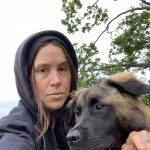 |
ONYX VANESSA SLOAN MORGAN ASSISTANT PROFESSOR, COMMUNITY, CULTURE & GLOBAL STUDIES (GEOGRAPHY) BA University of Victoria, MES Dalhousie University, PhD Queen’s University at Kingston. I grew up on lək̓ʷəŋən territories in Victoria, BC where my interests in land and water, and how power dynamics impact our relationships to them, emerged. Since then, I have found myself in the university where I am privileged to work on community-led research projects on topics such as: intergenerational impacts of resource extraction, youth-led research for healthy and justice-oriented environments and communities, and modern treaties. As a queer and non-binary geographer of primarily Irish and Scottish ancestries, I’m also interested in how colonialism impacts our relationships to each other and to ourselves, including who and how we can love. These are all topics I’m excited to teach about at UBCO. |
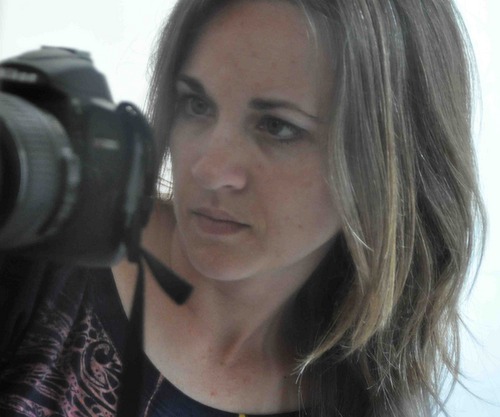 |
JESSICA STITES MOR DIRECTOR, LATIN AMERICAN AND IBERIAN STUDIES, ASSOCIATE PROFESSOR, HISTORY B.A. (Hons) University of Kansas—History and Economics, M.A. Yale University—International Relations and History, Ph.D. Yale University—History In my research, I strive to integrate the meta-narratives of transnational history and political economy with the methodological tools of cultural history that give shape to detailed studies of place and agency. As a cultural historian, my teaching frequently involves the exploration of art, performance, craft, and media technologies. I have recently begun a pilot project at UBC Okanagan teaching hands-on documentary filmmaking as a tool for historians and other humanities and social science scholars. My course Digital Media and History/Filmmaking for Scholars and Activists uses creative practice and dialogue to uncover the many ways in which historians use film and digital media for inquiry, interpretation, and communication. I have recently given talks on the role of digital media in political activism, collective memory struggles, and public history debates. |
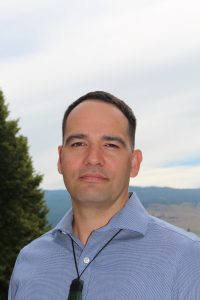 |
BRADEN TE HIWI ASSISTANT PROFESSOR, INDIGENOUS STUDIES, COMMUNITY CULTURE and GLOBAL STUDIES (On Leave) MHK, University of Windsor. PhD The University of Western Ontario. I am an Assistant Professor of Indigenous Studies. As a Maori (Ngāti Raukawa and Rangitāne) of the Manawatū region of Aotearoa/New Zealand, I am a happy to be a guest on the unceded and traditional territories of the Syilx peoples. My research and teaching have a focus on Indigenous approaches to wellbeing. My approach to scholarship includes an emphasis on Indigenous methodologies, history, and community engaged research. |
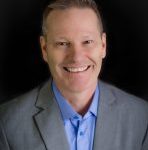 |
PAUL van DONKELAAR PROFESSOR, SCHOOL OF HEALTH AND EXERCISE SCIENCES, FACULTY OF HEALTH AND SOCIAL DEVELOPMENT, UBC OKANAGAN University of British Columbia, BPE, MPE, University of Calgary, PhD I am a Professor in the School of Health and Exercise Sciences at UBCO. I am the Principal Investigator on the Supporting Survivors of Brain Injury and Abuse through Research (SOAR) Project which examines the intersection of intimate partner violence (IPV) and brain injury (BI). This community-engaged project is a collaboration between UBCO and Kelowna Women’s Shelter and seeks to characterize the incidence and effects of IPV-related BI, increase knowledge and awareness of this issue in those who provide supports for survivors, and implement and evaluate community-based interventions with the goal of improving quality of life in this underserved population. |
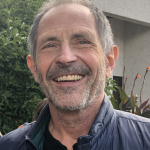 |
JOHN WAGNER
ASSOCIATE PROFESSOR, ANTHROPOLOGY, DEPARTMENT OF COMMUNITY, CULTURE AND GLOBAL STUDIES, FACULTY OF ARTS AND SCIENCES
PhD McGill University, MA and BA University of Victoria
I conduct research on human/water relations in the Okanagan Valley, the Columbia River Basin in Canada and the United States, and in Papua New Guinea. The Papua New Guinea project, undertaken in collaboration with the Kala Language Committee and other university researchers and students, is focused on documenting the Kala language through a study of their aquatic environment. In my Columbia River Basin research, I focus on water governance and the relationship of the Columbia River Treaty to irrigation, food security and food sovereignty. In the Okanagan Valley, I am working in collaboration with other university researchers and community organizations to develop a museum exhibition that will bring together indigenous Syilx knowledge and western scientific knowledge about our waterways, in support of wiser water stewardship, decolonization and reconciliation. |
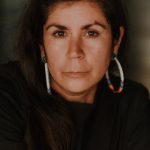 |
TANIA WILLARD Tania Willard is a mixed Secwépemc and settler artist/curator whose research intersects with land-based art practices. An Assistant Professor in the Faculty of Creative and Critical Studies at UBCO in Syilx territories (Kelowna, BC Canada), her practice activates connection to land, culture, and family, centering art as an Indigenous resurgent act, though collaborative projects such as BUSH Gallery and support of language revitalization in Secwépemc communities. Her artistic and curatorial work includes Beat Nation: Art, Hip Hop and Aboriginal Culture at the Vancouver Art Gallery (2012-2014) and Exposure: Native Art and Political Ecology at the IAIA Museum of Contemporary Native Arts, Santa Fe (ongoing). Willard’s work is included in the collections of the Vancouver Art Gallery, Forge Project, Kamloops Art Gallery, and the Anchorage Museum, among others. In 2016, she received the Hnatyshyn Foundation’s Award for Curatorial Excellence in Contemporary Art. In 2020, the Shadbolt Foundation awarded her their VIVA Award for outstanding achievement and commitment in her art practice, and in 2022 she was named a Forge Project Fellow for her land-based, community-engaged artistic practice. (Profile photo credit: Billie Jean Gabriel) |
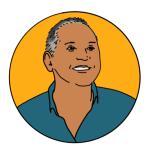 |
SHAWN WILSON BSc University of Manitoba, MA University of Alaska Fairbanks, PhD Monash University Dr Shawn Wilson is from the Opaskwayak Cree Nation but lives on Syilx territory. He is an Associate Professor of Indigenous Studies in the Department of Community, Culture and Global Studies at the University of British Columbia, Okanagan in Kelowna BC.
|
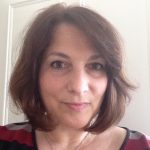 |
HELEN YANACOPULOS PROFESSOR OF POLITICAL SCIENCE PhD, University of Cambridge, MA, University of East Anglia, BA, University of British Columbia Dr. Yanacopulos is based in the Department of Economics, Philosophy and Political Science. After working in the corporate sector, she returned to academia having worked at the Open University in the UK (2000-2018) before coming to UBC in 2018. Her research is at the intersection of International Relations and International Development, specifically looking at transnational networks, NGOs, social movements and civil society, transnational governance, human rights and the mediation and representation of international development. She has acted as a consultant for numerous international organisations and NGOs, and has been a consultant on seven BBC documentary series. |
Associate Members
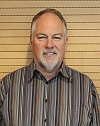 |
MICHAEL M. BURGESS PROFESSOR EMERITUS Burgess combines ethical and social theory with social science methods related to policy in health care, health research and biotechnology, recently focused on deliberative public engagement. His graduate supervision has been primarily in Interdisciplinary Studies, and his seminars typically include students with backgrounds in science, health care, health research, social science and humanities. His research has been funded by SSHRC, CIHR, Genome Canada and Genome BC, as well as NGOs and industry contracts. |
 |
SHELLEY COOK POST-DOCTORAL RESEARCHER – HEALTH SYSTEMS IMPACT FELLOW BA, MA, PhD UBC Okanagan Shelley Cook is a post-doctoral health researcher in the Faculty of Health and Social Development at the University of British Columbia – Okanagan. Her research is focused on people with intellectual and/or developmental disabilities and additional ‘complex’ needs that bring them into contact with multiple intersecting service systems. The focus of her doctoral research was on street homeless social capital in the urban environment and related policy and service implications. Shelley has over 20-years of experience as a practitioner working at the nexus of multiple intersecting service systems supporting people with ‘complex’ needs (i.e., homeless/street entrenched, criminal justice involved youth/adults). She has extensive experience in program and community development and service delivery in both BC and Ontario. Prior to returning to university to complete her doctoral studies, Shelley was the Executive Director of John Howard Society of the Central and South Okanagan (2003-2014) based in Kelowna, B.C. Shelley is extremely active in addressing issues of social justice and equity through her involvement in committees/boards, local initiatives, and community-based research advancing the interests of marginalized populations. In 2017, Shelley received a national award in innovation and urban sustainability (Dr. Alex Aylett National Award) for her community-based research efforts supporting homeless people. In 2019 she was awarded a Health System Impact Fellowship through the Canadian Institute for Health Research and the Michael Smith Foundation for Health Research in BC. |
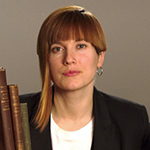 |
CONSTANCE CROMPTON ASSISTANT PROFESSOR, FACULTY OF CREATIVE AND CRITICAL STUDIES, UBC OKANAGAN BA, MA Ryerson University, PhD York University. Constance Crompton is an Assistant Professor of Digital Humanities in Critical Studies and Director of UBCO’s Humanities Data Lab. She is a researcher with Implementing New Knowledge Environments (INKE) and, with Michelle Schwartz, she co-directs the Lesbian and Gay Liberation in Canada project. She serves the associate director of the Digital Humanities Summer Institute and as a research collaborator with The Yellow Nineties Online. Her work has appeared in several edited collections, the Victorian Review, Nineteenth-Century Gender Studies, The UBC Law Review, Digital Humanities Quarterly, and Digital Studies/Champs Numerique. |
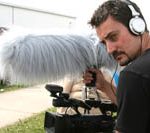 |
STEPHEN FOSTER
Dean, Faculty of Art, OCAD University, Stephen Foster is a video and electronic media artist of mixed Haida and European background. His work tends to deal with issues of indigenous representation in popular culture through personal narrative. He has exhibited in solo as well as group exhibitions both internationally and nationally as well as participating in various festivals with video installations and single channel works. In 2007 Stephen received his first opportunity to present a retrospective screening of his video work at the Dawson City International Short Film Festival. In addition to his exhibition record, Stephen is a published author, presented lectures and has participated on panels for new media, video art and contemporary indigenous art at national and international venues. He has taken part in residencies at the Banff Centre For The Arts, Klondike Institute of Art and Culture, Oboro in Montreal and more recently at La Chambre Blanche in Quebec City. |
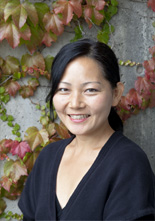 |
AYUMI GOTO
Ayumi Goto is a performance artist based in Kelowna, Okanagan Nation territory. Born in Canada, she draws upon her Japanese heritage to trouble sedimented notions of nation-building, cultural belonging, and human-land relationships in her creative work. She has served as the art facilitator at the Downtown Eastside Women’s Centre in Vancouver. Ayumi guest co-edited the Summer 2012 issue of West Coast Line, “Reconcile this!”, which explores the interconnections between reconciliation, art, and activism. She enjoys working in collaboration with artists, scholars, and communities writ large to explore creatively and critically reconciliation discourses. Ayumi is currently pursuing her Ph.D. in Communication Studies at Simon Fraser University. |
| FEMKE HOEKSTRA
Assistant Professor, Department of Medicine, Division of Social Medicine Dr. Hoekstra is an Assistant Professor at UBC’s Department of Medicine, Division of Social Medicine in the area of Implementation Science. She is also Investigator within the Centre for Chronic Disease Prevention and Management (CCDPM) at the UBC Okanagan and Associate Member of International Collaboration on Repair Discoveries (ICORD). Dr. Hoekstra holds a Doctor of Philosophy, PhD from the University of Groningen in the Netherlands, in the areas of implementation science, rehabilitation, and physical activity promotion. Dr. Hoekstra’s runs the Implementation Science & Isolated Communities (ISIC) lab (https://isiclab.med.ubc.ca/). Her implementation science research program focuses on improving (virtual) health services and care for equity-deserving groups in rural, remote and isolated communities. Her research involves studying implementation processes of health innovations in real-world settings from different perspectives. To maximize the quality and impact of her work, she meaningfully engages research users as partners throughout the research process. |
|
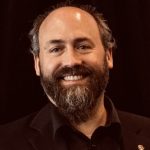 |
NELSON JATEL, PhD, P. Ag.
Adjunct Professor, Freshwater Science Program (UBCO) Nelson Jatel is the Water Stewardship Director at the Okanagan Basin Water Board and an Adjunct Professor in the Department of Earth, Environmental and Geographic Sciences at UBC Okanagan. He has over 20 years of experience leading initiatives in watershed governance, Indigenous co-leadership, and sustainable water resource management. At UBCO, Nelson teaches upper-level courses in Limnology and Water Management, drawing on his professional expertise and academic research. His doctoral work in Social Science focused on applying social network analysis to watershed governance, with an emphasis on systems thinking and the Theory of Change. Nelson is actively engaged in community-based research and serves on several boards that support environmental innovation, Indigenous partnerships, and evidence-informed decision-making. He also enjoys guiding fishing trips and spending time at his family’s vineyard on the Naramata Bench. |
 |
DONNA LANGILLE (she/her/hers)
COMMUNITY ENGAGEMENT LIBRARIAN, UBC Okanagan Library I live and work as an uninvited guest on the unceded, ancestral, and traditional territory of the Syilx Okanagan Nation. I am the Community Engagement Librarian, as well as the subject liaison librarian for film studies, theatre, media studies, and the digital humanities at UBC Okanagan. I often staff the UBC Innovation Library in downtown Kelowna, where I provide research support to faculty, students, and community members. My professional interests include open education, open and public scholarship, and the digital humanities. My current research focus is creating The Okanagan QueerStory podcast, a community-led project that seeks to explore the queer history of the Okanagan |
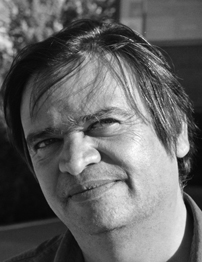 |
ASHOK MATHUR DEAN OF GRADUATE STUDIES | INTERIM VICE-PRESIDENT, RESEARCH/INNOVATION ONTARIO COLLEGE OF ART AND DESIGN UNIVERSITY Ph.D. University of Calgary—English. Mathur’s cultural, critical, creative, and academic practice is wide ranging and investigates new models of artistic research and interdisciplinary collaboration, particularly those that pursue a social justice agenda. As a writer, cultural organizer, and interdisciplinary artist his work addresses the intersections of race, indigeneity, and creative and artistic research. His editorial work includes the anthology Cultivating Canada: reconciliation through the lens of cultural diversity (Aboriginal Healing Foundation, 2011), and numerous special volumes of arts and literary journals such as West Coast Line and Prairie Fire. He also edits CiCAC Press which publishes poetry, prose, and creative nonfiction using an alternative author-driven approach to support writers and readers. |
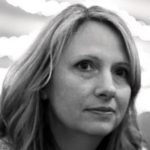 |
MICHELLE J. NILSON ASSOCIATE PROFESSOR, FACULTY OF EDUCATION, Simon Fraser University, BA (Wayne State University), MA (New Mexico State University), PhD (University of Nevada, Las Vegas) Michelle Nilson is an Associate Professor in the Faculty of Education at Simon Fraser University. The focus of her teaching areas are: educational leadership; organizational theories; reflective practice and research methods. Her research interests focus on the antecedents of postsecondary access and participation for vulnerable populations of students, postsecondary and career aspirations, and community campus engagement. She is currently in the final year of a large SSHRC partnership grant, Communities First: Impacts of Community Engagement, which led to the development of Community Campus Engage Canada (CCEC), a pan-Canadian non-profit organization that focuses on the development of a community of practice in support of engagement scholars, community members, and professionals. She is also in the final year of a 10 year private foundation funded collaborative research project with Surrey Schools that examines the development of youth aspirations between grades 5 – beyond graduation. |
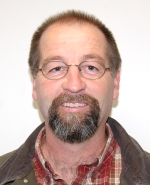 |
COLIN REID ASSISTANT PROFESSOR, HEALTH & EXERCISE SCIENCES PhD (2003) Sociology (Aging) University of Victoria My main areas of teaching expertise are health and aging, research methods and statistics. I believe that students learn best under conditions that foster mutual respect between teacher and student, but also between students. I bring both knowledge and passion to the classroom. I believe that I must teach my students how to think critically, to identify the underlying assumptions of any given argument and to subsequently be able to weigh the argument’s validity. My research focuses on how to best care for persons who reside in nursing homes and includes the assessment of transitions between home, hospital, assisted living and nursing homes. |
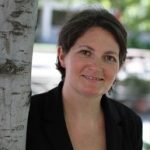 |
KERRY REMPEL PROFESSOR, SCHOOL OF BUSINESS, OKANAGAN COLLEGEBPE (Kinesiology), MBA, University of Alberta, PhD Candidate, Interdisciplinary Studies, UBC, Okanagan. I am a professor at of business at Okanagan College teaching in the areas of Nonprofit and Social Enterprise as well as Human Resources and Management. I focus on bringing applied learning into the classroom and have co-published several teaching case studies. Our work has been recognized as “best case” at both ASAC and NACRA. I am dedicated to working with the nonprofit community. My current research is related to Allyship in Research and understanding the issue of homelessness from the perspective of a field of systems. |
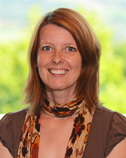 |
PAMELA RICHARDSON INSTRUCTOR, FACULTY OF EDUCATION, UBC Okanagan BA (Hons), B.Ed., MA, PhD (British Columbia) Dr. Pamela Richardson is an Instructor in the Faculty of Education at the University of British Columbia (Okanagan).She teaches courses focused on special and inclusive education, human development, English language arts, and teacher inquiry. She brings critical and post-structural theoretical perspectives to the fields of human development and educational psychology, as well as, qualitative and arts-based research methodologies with a particular interest in diverse poetic and narrative approaches to research. Through her research and writing, she explores how we construct understandings of human development, with a particular focus on gender, ability, creativity, and the lives of gifted and creative women. She is the editor of English Practice, the journal of the BC Teachers of English Language Arts Association, and active on the BCTELA executive committee. |
| MARLOWE SAM LECTURER, INDIGENOUS STUDIES Marlowe Sam is a Wenatchi/Lakes descendent from the Colville Confederated Tribes of Washington State (CCT).Marlowe majored in Indigenous Studies at the University of British Columbia Okanagan and received a B.A. and M.A. with distinction. He defended his doctoral dissertation “Oral Narratives, Customary Law and Indigenous Water Rights in Canada” to earn a Ph.D. majoring in Interdisciplinary Graduate Studies from UBC Okanagan during which he was the recipient of the Joseph-Armand Bombardier Canada Graduate Scholarship. |
|
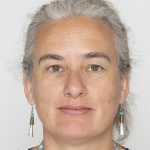
|
MARY STOCKDALE ADJUNCT PROFESSOR, COMMUNITY, CULTURE & GLOBAL STUDIES, (GEOGRAPHY) Queen’s University B.SC, D. Philosophy, University of Oxford. Dr. Mary Stockdale is an adjunct professor and instructor for Community, Culture and Global Studies at UBCO, where she teaches and researches community resilience, sustainability and natural resource management. She has over 20 years of experience working in Southeast Asia (mainly Indonesia and the Philippines) on community-based management of non-timber forest products (NTFPs). In the Okanagan, she acts as a bridge between university and community for partnerships on topics such as regional food systems, sustainable transportation, transition town initiatives and climate change awareness. |
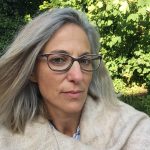 |
DELACEY TEDESCO ASSOCIATE DIRECTOR OF EQUITY, DIVERSITY, INLCUSION AND ACCESSIBILITY, OKANAGAN COLLEGE; HONORARY LECTURER, POLITICS AND INTERNATIONAL RELATIONS, UNIVERSITY OF EXETER, UK B.A. (Hons), M.A. (Cultural, Social, and Political Thought), and PhD, University of Victoria Delacey Tedesco lives and works on the traditional, ancestral, and unceded syilx/Okanagan territory. She is currently the Associate Director of Equity, Diversity, Inclusion and Accessibility at Okanagan College. She remains affiliated with the College of Humanities and Social Sciences (HASS Penryn Campus) at the University of Exeter, UK, where she was a lecturer (assistant professor) from 2017-2022. She is an active member of the Decolonial Cities Collective, an interdisciplinary network of scholars in Canada and UK supported by the British Academy. Her research and publications include work on aporetic boundaries and material metaphors, urban settler coloniality, and aesthetics, public art and fashion curation. Both her academic and professional work are grounded in collective creative practice and practice-based theory as political interventions into everyday and academic life. |
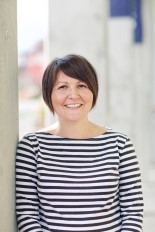 |
ADRIENNE VEDAN EXECUTIVE DIRECTOR, ABORIGINAL PROGRAMS & SERVICES, UBC OKANAGAN Adrienne Vedan is a member of the Syilx Okanagan Nation from the Okanagan Indian Band and Director of Aboriginal Programs and Services. Her interests and work include understanding how admissions pathways and institutional structures are related to widening participation and access to higher education for Indigenous learners and Indigenous student success. Adrienne enjoys working in collaboratively to examine Indigenous student pathways and mobility. |
Community Partners
The Institute For Community Engaged Research is also made up of the following community partners:
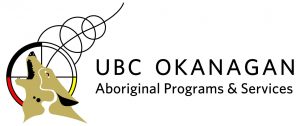 |
Aboriginal Programs and Services Executive Director: Adrienne Vedan Room 212 University Services Centre (UNC), UBC Okanagan, Kelowna, BC |
 |
Alternator Centre for Contemporary Art Artistic & Administrative Director: Lorna McParland 421 Cawston Ave, Unit 103, Kelowna, B.C., V1Y 6Z1 |
| Canadian Mental Health Association – Kelowna Director of Service Delivery & Program Innovation: Mike Gawliuk, 504 Sutherland Avenue Kelowna, BC, Canada V1Y 5X1 |
|
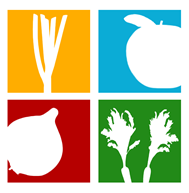 |
Central Okanagan Food Policy Council Board Chair: Linda Trepanier PO Box 22001, Capri PO, Kelowna, BC V1Y 9N9 |
| Community Service Learning Program (UBC Okanagan) Program Manager: Phil Bond Community Service Learning Program The University of British Columbia, Okanagan campus UNC227 – 3333 University Way Kelowna, BC V1V 1V7 |
|
| Community Engagement Strategist (UBC Okanagan) Suann Brown EME 3285 – 1137 Alumni Ave Kelowna, BC V1V 1V7 |
|
| Disability Resource Centre (UBC Okanagan) Diversity Advisor: Earllene Roberts; Program Advisor: Deanna Simmons UNC227 – 3333 University Way, Kelowna, BC Canada V1V 1V7 |
|
| En’owkin Centre Manager, Arts, Culture & Adult Higher Learning: Tracy Kim Bonneau Lot 45, Green Mountain Road RR#2 Site 50 Compartment 8 Penticton B.C. V2A 6J7 |
|
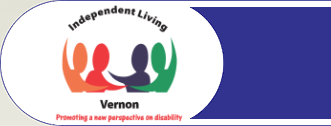 |
Independent Living Vernon Executive Director: Laura Hockman 3402 27th Avenue, Suite 107 Vernon, BC V1T 1S1 |
| Interior Health Trevour Corneil, Medical Health Officer & Medical Director, STOP HIV/AIDS | Interior Health Kelowna Health Centre 1340 Ellis Street Kelowna, BC, V1Y 9N1 |
|
 |
Kelowna Community Resources Executive Director: Ellen Boelcke 1735 Dolphin Ave Kelowna, BC V1Y 8A6 |
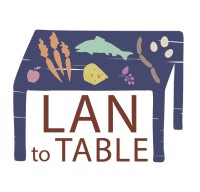 |
North Okanagan Land to Table Network Executive Director: Liz Blakeway Vernon, BC |
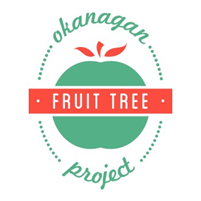 |
Okanagan Fruit Tree Project Casey Hamilton; Project Coordinator: Ailsa Beischer 1264 Ellis Street, Kelowna BC, |
 |
Okanagan Nation Alliance Executive Director: Pauline Terbasket #101, 3535 Old Okanagan Hwy Westbank, BC V4T 3L7 |
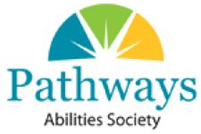 |
Pathways Society Executive Director: Charisse Daley 123 Franklyn Rd., Kelowna, BC V1X 6A9 |
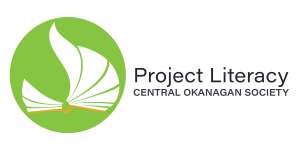 |
Project Literacy Central Okanagan Executive Director: Paul Zuurbier 1635 Bertram Street, Kelowna, BC V1Y 2G5 |
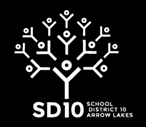 |
School District 10 Superintendent: Terry Tayler Box 340, Nakusp, BC V0G 1R0 |
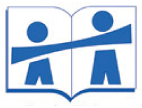 |
School District 23 Early Learning & Literacy Coordinator: Donna Kozak 1940 Underhill Street Kelowna, British Columbia Canada V1X 5X7 |
| School District 67 Director of Instruction: Dan McIntyre Representative: Judith King 425 Jermyn Avenue Penticton, British Columbia V2A 1Z4 |
|
 |
School District 74 Superintendent of Education: Teresa Downs 400 Hollis Road, PO Bag 250 Ashcroft, BC V0K 1A0 |
 |
School District 83 Director of Instruction: Wendy Woodhurst Rep: Kyla Hadden Box 129, 220 Shuswap St. N.E Salmon Arm, B.C V1E 4N2, Canada |
 |
South Okanagan Immigrant Community Services, (SOICS) Local Immigrant Partnership coordinator: Nora Hunt Haft, Program Manager: Tahira Saeed 508 Main St., Penticton B.C. V2A 5C7SOICS is a one stop shop that works together with immigrants to help them get settled, find careers and learn all they need to know about starting their new lives in Canada. Our multi-lingual staff appreciates the valuable contributions immigrants make to Canada while also understanding the difficult challenges of settling in a new country. We work together with immigrants to help them realize the full potential of their lives in Canada. |
| UBC Okanagan Equity and Inclusion (UBC Okanagan) 227C University Centre, 3333 University Way, Kelowna, BC, V1V 1V7 Equity and Inclusion Educator: Madison Tardif |
|
 |
Vernon Community School Teacher: Kim Ondrik 2301 Fulton Road, Vernon, BC, V1H 1Y1 |
International / National Collaborating Centers and Institutes
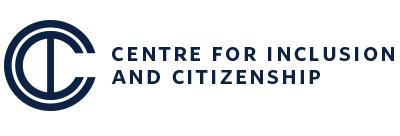 |
Centre for Inclusion and Citizenship Director: Tim Stainton 2080 West Mall, UBC Vancouver, BC, V6T 1Z2 |
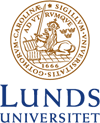 |
CRUSH – Critical Urban Sustainability HUB, Lund University Sweden Primary Investigator: Guy Baeten – Department of Human Geography, Lund University Box 117, 221 00 LUND |
| Department of Curriculum and Instruction Faculty of Education (UVIC) Kathy Sanford – Assoc. Professor University of Victoria MacLaurin Building A541 PO Box 1700 STN CSC Victoria BC V8W 2Y2 |
|
| Faculty of Education (UBC Vancouver) Deborah Butler Neville Scarfe Building 2125 Main Mall, UBC Vancouver, BC Canada V6T 1Z4 |
|
 |
Icelandic Tourism Research Centre Director: Edward H. Huijbens University of Akureri and University of Iceland BORGUM v/NORÐURSLÓÐ – 600 AKUREYRI |
 |
SPaCE – Sustainability, Partnerships and Community Engagement Southern Cross University – SPaCE Head: Ben Roche [Also the Deputy Chair, Engagement Australia, and the Chair, Regional Universities Network Engagement Group] Military Road East Lismore NSW 2480 |
 |
Wageningen University and Research Centre, The Netherlands Chair of Cultural Geography: Claudio Minca Droevendaalsesteeg 3 6708PB WAGENINGEN |
Students and Alumni
Graduate students and research assistants associated with ICER Research Members are de facto members of ICER, and are welcome to participate in ICER programming and events.
Other students with an interest in Community Engaged Research are welcome to reach out to join mailing list.
Staff
Joanne Carey – Research Administrator
Arts 368, 1147 Research Road
Kelowna, BC
V1V 1V7
